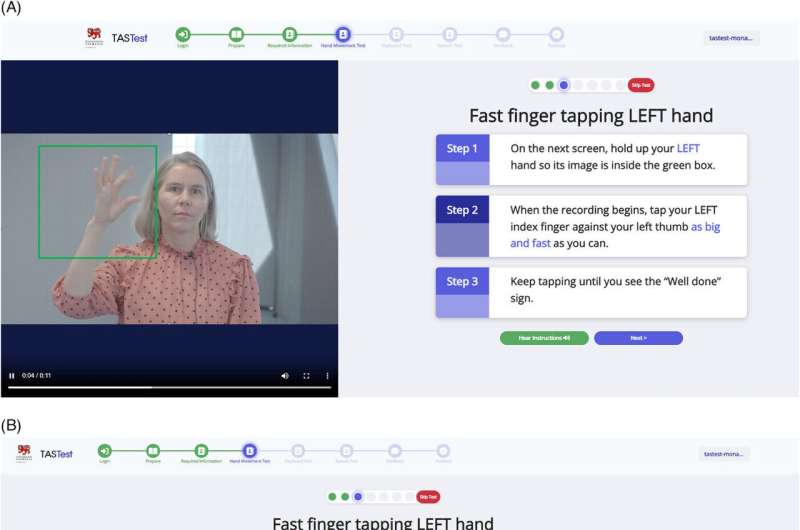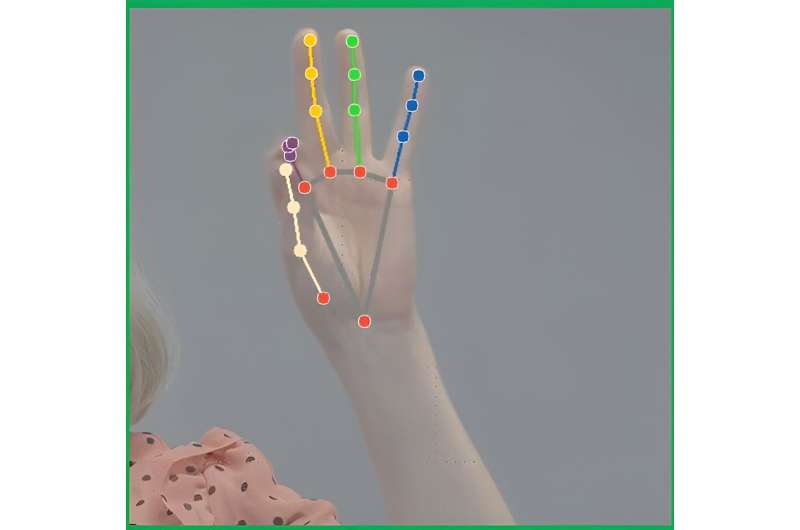This article has been reviewed according to Science X's editorial process and policies. Editors have highlighted the following attributes while ensuring the content's credibility:
fact-checked
trusted source
proofread
Researchers move a step closer to developing at-home test to detect dementia

Tasmanian scientists are a step closer to developing a computer test that can detect dementia, decades before any memory symptoms emerge, recent research has found.
In 2020, researchers from the University of Tasmania's Wicking Dementia Research and Education Centre developed TAS Test—a new computer screening test that picks up changes in hand movements that could indicate increased risk of dementia occurring 10–20 years later.
In the latest study, researchers sought to analyze the effectiveness of TAS Test with participants from Wicking Centre's ISLAND Project.
About 400 people took part in the study undertaking TAS Test at home, where they recorded themselves tapping their fingers against their thumbs in a quick test that took around 30 seconds.
Researchers compared precisely measured details of these movements, such as the rhythm of tapping and the speed of the movements, to the participants' cognitive test scores which are recorded as part of their involvement in the ISLAND Project.
"This is the largest study of its kind, to measure finger tapping and compare to cognitive function," Associate Professor Jane Alty, neurologist at the Wicking Dementia Research and Education Centre, said.
"It is also the first to look in detail at how hand movements relate to different cognitive aspects such as memory and executive function. The study's outcomes mean we are a step closer to developing a computer test that can be used at home to detect dementia risk decades before any memory symptoms emerge."

Associate Professor Alty said all participants scored well on the cognitive tests as this was a healthy population.
"What we did find is those with slightly lower cognitive test scores (i.e., higher risk of dementia in the future), that their hand movements had a less regular rhythm and they tapped slower," she said.
"These subtle changes cannot be seen by the human eye but we could measure them by developing our own specialized 'computer vision' algorithms; these specialist computer methods use artificial intelligence to track the fingers and thumb in the videos and are similar to how computers automatically detect your face to unlock your mobile phone, or automatically recognize your number plate when you enter a car park."
Another round of TAS Test assessments is currently being undertaken this month, and people interested in participating should contact the ISLAND Project team
The paper, "Brief webcam test of hand movements predicts episodic memory, executive function, and working memory in a community sample of cognitively asymptomatic older adults," was led by Ph.D. student Renjie Li and published in Alzheimer's & Dementia: Diagnosis, Assessment & Disease Monitoring.
More information: Renjie Li et al, Brief webcam test of hand movements predicts episodic memory, executive function, and working memory in a community sample of cognitively asymptomatic older adults, Alzheimer's & Dementia: Diagnosis, Assessment & Disease Monitoring (2024). DOI: 10.1002/dad2.12520




















